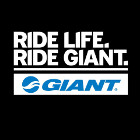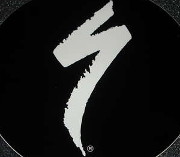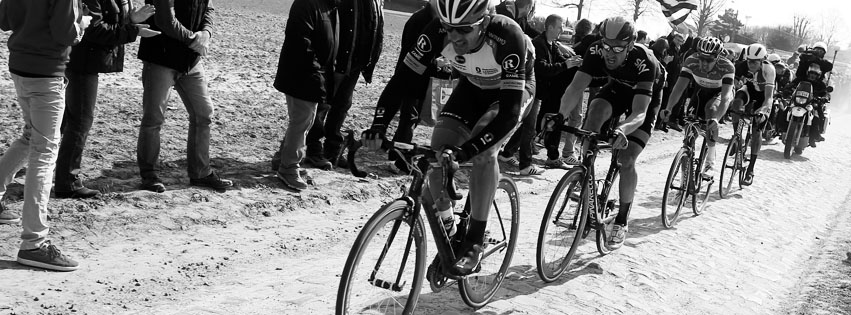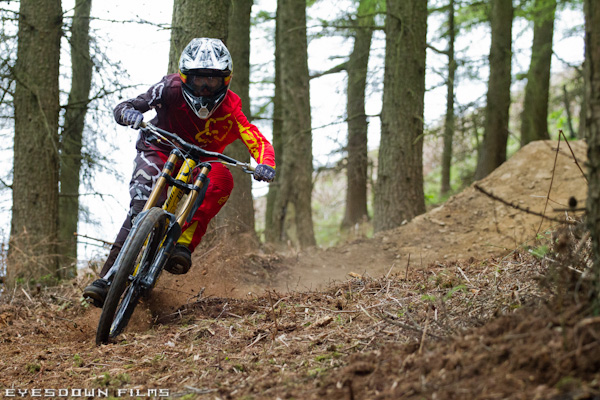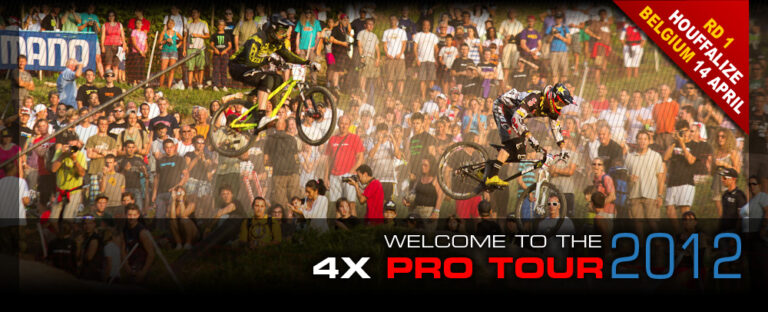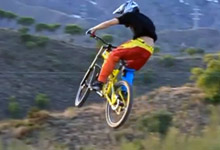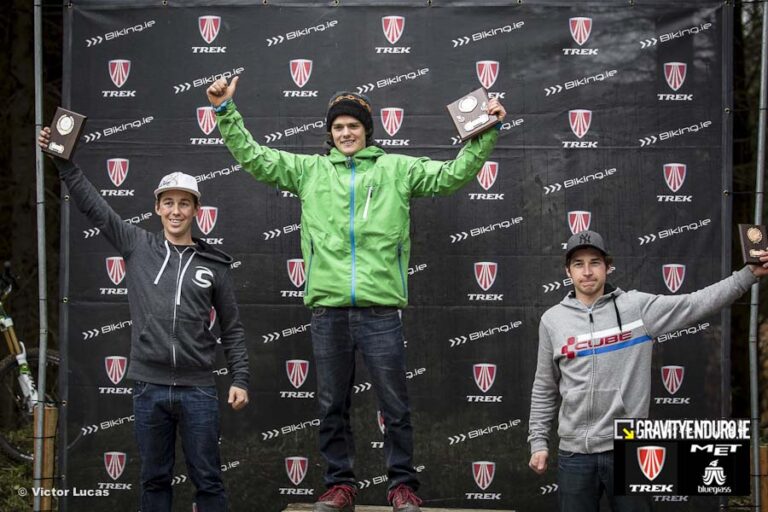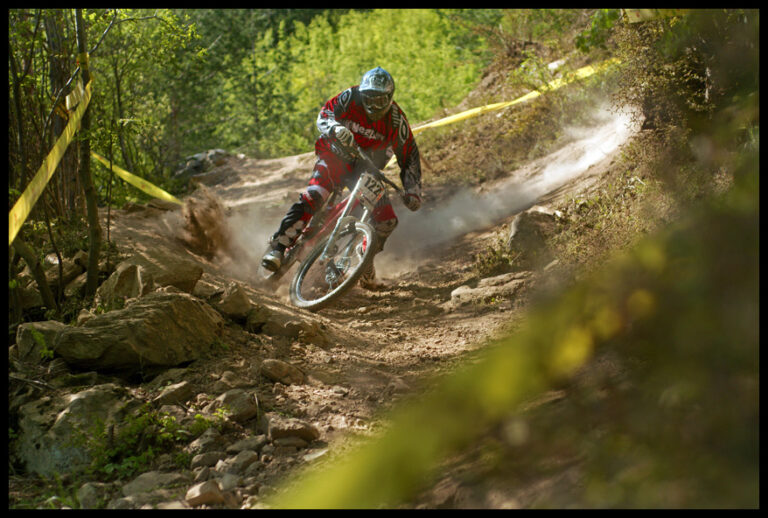We talk to the top World Cup teams about the 2012 World Cup race season.
Words and photos: Sven Martin.
2012 World Cup Teams.
GT Factory Racing (Previously Atherton Racing): Gee, Dan, Rachel Atherton & Marc Beaumont.
Manager: Dan Brown.
Any big changes to your program for 2012? Bikes, equipment, team operations, riders?
Dan Brown:
Huge changes for us at Atherton Racing, we’ve gained a new rider and a new mechanic and had to say goodbye to our trusty Stevie Bell, who wanted to take some time off and enjoy the summer away from the travelling circus. On the sponsor front we’ve signed a three year deal with GT. We are all super excited about that deal and what the future holds and can’t wait to get GT on that podium every weekend. On a development front we’re continuing to work with Fox and Shimano to help bring on their products, and with some exciting new stuff coming from them this year it will push our new Fury’s that bit more. Gear wise we’ll be rocking ONE Industries kit which we will be helping to develop into a full mountain bike line. The early stages have produced some great products and step by step we’re working alongside the designers to ensure the products meet the demands of a World Cup racer.

Which events of 2012 are you most looking forward to and why?
South Africa, our first big event for the new team! Fort William, because of the home support and fan interaction. Mountain of Hell, because the whole team is going to ride! Worlds at Leogang, Gee and Rach have both had some close races there so it’s going to be an exciting race this year. Rampage, who couldn’t get excited about Rampage?
What number of major events (UCI WC and Non) do you feel is optimal for a team or rider to attend? Budgets vs exposure throughout the whole year.
I personally would like to see 10-12 World Cups throughout the season and no other events. It would allow us to focus on the major goal whilst allowing riders to have more of a chance even with the odd injury. It would also give the fans more of a focus.
What makes a World Cup a success in your eyes? A good track with close racing? A good webcast and media/TV exposure? Number of fans and spectators?
All of the above and I don’t see why each race cannot offer this. Maybe less importance for close racing but a good track is essential, the TV exposure ensures fans and new comers to the sport can see how awesome these events are, and the on site crowd ensures a good vibe at the venue.
How important are new venues to the calendar each year? And do you feel there should be fixed venues (like MSA and Ft William) each and every year?
Personally, I like fixed venues but when it starts getting stale I think its time to move on. Having venues that have been visited before gives the media and fans a lot to talk about; previous winners, last years times, local heroes, etc. For sure these factors vary hugely compared to other sports but it’s still great reading/viewing. Through the nature of how venues operate there will always be a mixture of fixed and new stops. I hope a few years down the line when the World Cup is back in the limelight we will see more fixed venues. Ideally I would say two or three rounds would be left unfixed to leave space for change and new events to come and go.
What countries/continents would you like to see a UCI World Cup held in? Are we overlooking NZ, Australia, South America, Asia? Do the current budgets and economy not allow for such a wide reaching series? How do you think it could best be approached?
Like I said above, I reckon it’d be perfect if we had 10-12 World Cups with 8 or 10 in mainland Europe and North America and the rest being in other continents. For sure it’s expensive but we are a World Cup and the following is there in other countries. The Brazilian round will always be one of my favorites. There are two major issues with events away from Europe and North America though; one is the logistics of getting bikes and product out to the venue, and the other is our onsite presence. Sponsors pay us to attend events to represent their brands in a professional way, but when we are working from shitty white tents on top of a muddy field we cannot do this. Both could easily be addressed but it needs to be done by the UCI to help bring down costs and keep things consistent. We’ll see how they do in South Africa this year!
Trek World Racing: Aaron Gwin, Justin Leov & Neko Mullaly.
Manager: Martin Whitely.
Any big changes to your program for 2012? Bikes, equipment, team operations, riders?
Martin Whitely: From an equipment point of view we obviously swapped from the aluminum Session 88 to the carbon Session 9.9 during 2011, and 2012 will see all riders full time on the 9.9. This year the riders will also be full time on Bontrager rubber, the G Series of product. The riders had the choice on this matter, and unanimously chose Bontrager. We expect a lot of interest from the fans in this change. We’ve also enlisted DT Swiss to provide hubs in 2012 and we’re already very impressed with the testing results. Other than that we’re sticking with our proven combination of Fox and Shimano, together with FUNN, SDG, Gamut USA and ODI.
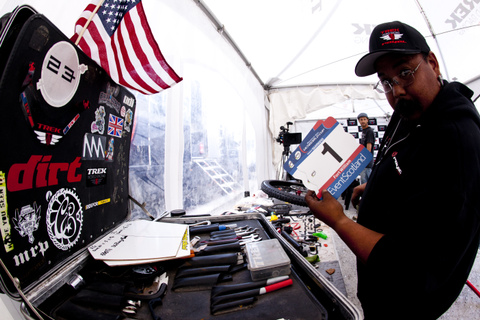
TWR mechanic Monkey.
New for 2012 from a staffing point of view is the hiring of 2000 World DH Champion and general legend of the sport, Myles Rockwell. We feel there is a key role to be played by Myles in assisting the riders not only with getting the most out of their practice sessions, but also with learning more about coping with the challenges this sport throws at you. His official title is Rider Liaison, which is a fancy way of saying mentor, mother and minder.
Which events of 2012 are you most looking forward to and why?
It may be more interesting to say something unexpected here, but to be honest it’s still Fort William. That acre of land at the bottom of the mountain, at 3pm on race day, is the best place on earth to be if you love downhill racing. It’s our Kitzbühel. The parabolic terrain surrounded by a forest and stuffed with the most vocal and knowledgeable fans on the circuit makes what we do so much more rewarding. I’m also a little curious to go to Hafjell. It’s a bit of mission to get the trucks to, but all my visits to Scandinavia have been pretty awesome, so it could be a great way to end the season. It will most likely be a messy Sunday night! I’m super happy the finals are after the Worlds again.
What number of major events (UCI WC and Non) do you feel is optimal for a team or rider to attend? Budgets vs exposure throughout the whole year.
That’s a tricky balance and one that teams can often get wrong. You need to have a good conversation with each rider well and truly before you start setting the schedule. We do that in October typically. Each of our riders is different. Someone like Justin lives in the southern hemisphere and so he cannot go home between races. Aaron has the World Cup and World Champs as the only main goals, so supporting events are chosen for training and build up reasons. Neko is young and keen to gain as much experience as possible, and just loves to race week in week out. Our goal is not to over race the athletes, ensure exposure in markets that make our investors and fans happy, and keep the budget in check, especially when moving large rigs and staff around to support the riders. Not an easy juggling act but I was really happy with 2011’s schedule so we’ve stuck close to that this year.
What makes a World Cup a success in your eyes? A good track with close racing? A good webcast and media/TV exposure? Number of fans and spectators?
Yes, asked and answered! Seriously though, there are two main components. What makes a great SERIES, and then what makes one round more special than another. The ideal series needs serious funding from an out of industry sponsor, which would allow the UCI to inject serious funds into marketing, TV production, venue investment and prize money. It seems that this year there’ll be a major step forward in the TV production and distribution, as well as on-line broadcast, but I feel we are still lacking the major sponsor title to give the series the weighty credibility it deserves, and the investment needed in venues and prize money. Then when you look to the individual venues, the ones we teams love are ones that not only deliver great racing and excellent attendance figures, but ones that really make the teams and riders feel welcome and at home. The last thing we want to be doing once arriving on site after a lot of travel and expense to get there is start having fights about our poor tech area placement, or the lack of security, or staying in crappy hotels too far away from the venue etc.
How important are new venues to the calendar each year? And do you feel there should be fixed venues (like MSA and Ft William) each and every year?
Mixed is key. You need the classics but you also need to have new venues prepped to come in and replace the ones that have either lost their flavour or failed to live up to expectations. No venue should feel they have a World Cup for life, but at the same time, making too many changes in one year is disruptive and doesn’t help maintain a strong following for the series.
What countries/continents would you like to see a UCI World Cup held in? Are we overlooking NZ, Australia, South America, Asia? Do the current budgets and economy not allow for such a wide reaching series? How do you think it could best be approached?
Within IMTTO we have generally agreed and advised the UCI that a maximum of two venues outside the continents of Europe and North America can be acceptable for teams (that’s for all World Cups, DH, XC and the World Champs). The travel path needs to be logical and the dates reasonable. Any more than that and the investment into big rigs and tech set-ups becomes an issue as well as the travel. It’s definitely a lot harder for teams and tech support companies to have an equal level of set up and support when you go outside of these two main continents. It creates a lot of logistical issues. Having said that, I feel we are really overdue for a World Cup in Asia. I have worked with Arai Mountain in the past, as well as potential new venues in South Korea and a new venue in Japan, and in all cases they fully understand the cost in getting teams and media to attend, and allow for this in their budgets. Providing accommodation or other travel incentives can make it a lot easier for teams and media to attend. I also like Camboriu Beach as a venue in Brazil. The off-season down there meant accommodation was really cheap. Plus, the fans were brilliant. I’d endorse a return to South America as long as the venue made sense and it was where the sport thrives.
Santa Cruz Syndicate: Steve Peat, Greg Minnaar & Josh Bryceland.
Manager: Kathy Sessler.
Any big changes to your program for 2012? Bikes, equipment, team operations, riders?
Kathy Sessler: Yes, some big changes for us. After eight great years with SRAM/RockShox we have now switched to Fox Racing Shox and Shimano. Also, the guys will be riding full carbon bikes. The new sponsor products worked very well at the early test session in San Romolo, Italy in January, so the riders and mechanics are pumped to get the racing started. We also have a change up of mechanics. Ricky “Bobby” Clarkson has to spend more time at his work at The North West MTB Centre, but he will be at Fort William and the BDS races, and possibly World Champs. We will be really bummed not to have him at every round! We have hired Jason Marsh to join Dougie “Fresh” Hatfield in the wrenching department, and it won’t be long before we come up with a nick name for him.

Kathy Sessler
Which events of 2012 are you most looking forward to and why?
I look forward to returning to Pietermaritzburg. That’s a no brainer as Minnaar is the hometown favorite, and our riders have always performed well there. Plus Rob Roskopp always manages to arrange some type of special activity for us there, whether it is sky diving or game reserves, some type of fun is to be had.
I also always love going to Fort William: classic downhill track, the atmosphere is great, the organizers are top notch, and let’s not forget the Guinness at the Ben Nevis Inn! Again, the Syndicate history there is remarkable in that Greg has won 4 of the 10 World Cup downhill races there and Steve won one of the others! And the fans love the Brits and with Peaty and Ratty it gets pretty lively. I can say the same for Mt. Ste. Anne, it’s a classic and we have good history there. Josh had his first World Cup podium there last year. Let’s see if he can crack another one out.
What number of major events (UCI WC and Non) do you feel is optimal for a team or rider to attend? Budgets vs exposure throughout the whole year.
Obviously budgets are set so schedules are set wisely to get maximum exposure. We fill in races around the UCI World Cup races and World Championships. We like to do at least a dozen major events and add in smaller events around that. Travel path is one of the things I look at most. If the travel path lines up well it keeps costs down, and wear and tear on athletes and staff to a minimum.
What makes a World Cup a success in your eyes? A good track with close racing? A good webcast and media/TV exposure? Number of fans and spectators?
A successful World Cup in my eyes would have to include many key elements. Obviously media exposure is key or what is the point? Good organization making sure the race runs smooth, safe and fair is key, plus good infrastructure such as convenient accommodation and stores close to the race track makes my job easier, and any World Cup that we podium at is a successful World Cup!
How important are new venues to the calendar each year? And do you feel there should be fixed venues (like MSA and Ft William) each and every year?
The venues that are fixed are that way for a reason; they are great racetracks with great organization. I love going back to these classic venues. It’s nice to throw in a few new tracks though, it keeps things interesting and you might come up with a new classic.
What countries/continents would you like to see a UCI World Cup held in? Are we overlooking NZ, Australia, South America, Asia? Do the current budgets and economy not allow for such a wide reaching series? How do you think it could best be approached?
I would like to go back to race in Australia or New Zealand. For US based teams those locations are pretty equal to European rounds in cost terms. I think if any race organizers in any of the mentioned countries apply to the UCI for a World Cup they will look at it, so I think the countries themselves need to initiate it.
Giant Factory Off-Road Team: Danny Hart & Andrew Neethling.
Manager: Joseph Staub.
Any big changes to your program for 2012? Bikes, equipment, team operations, riders?
Joe Staub: For 2012 our big changes will be making all the necessary adjustments needed to supply our riders with everything they need to build on the 2011 season. We had more success in 2011 for Giant than in more than 15 or 20 years of World Cup racing combined. That has required us to build an even better infrastructure behind the scenes and generate more capacity for some of our staff members to focus their attention on helping our riders win. Staff to rider ratios will be more optimized, there’s been more early season product testing, and increased collaboration with sponsors on product development are just a few examples.
Which events of 2012 are you most looking forward to and why?
Personally, I’m most looking forward to the 1st World Cup in South Africa and the Fort William round. There is something indescribable that comes out of each rider when they race in their home country. Their drive to win in their own backyard inspires me to ride my own bike and generally makes racing a more intense experience. And of course I’m looking forward to the World Champs. Something special happened there with Danny, he found another level that no one else could find, and it was amazing.
What number of major events (UCI WC and Non) do you feel is optimal for a team or rider to attend? Budgets vs exposure throughout the whole year.
We are making the UCI World Cup our main focus with a handful of other events to round out the calendar. I should note that to properly attend even one series it takes an army and a boatload…think people and money. The resources are responsibly spent to yield a fair return. We can’t expect to ask a rider to race every weekend of the year, nor can we afford to do so if the events are spread over even a modest amount of the great race venues out there. A schedule of 12-15 races per year with the World Cup as a focus seems to be what the market can bear for a team our size, that is of course, to do it right by our standards.
What makes a World Cup a success in your eyes? A good track with close racing? A good webcast and media/TV exposure? Number of fans and spectators?
The best World Cup event in my eyes has always been Mt St Anne. They balance all the factors from catering for the top teams to integrating the local government and throwing one hell of a party to make a fantastic event. Their courses for DH and XC are among the best and always have been, and aside from Ft William the spectators are the biggest in number. I would say that each World Cup could benefit from better filming and broadcasting. Our sport is exciting to watch if filmed correctly and the quality of live coverage the past few years is significantly behind what other sports are doing and what technology allows. How great would it have been to watch Danny’s run at the World Champs live over the internet with an ‘on board’ camera mixed into stationary camera coverage?
How important are new venues to the calendar each year? And do you feel there should be fixed venues (like MSA and Ft William) each and every year?
New venues offer up a new challenge to riders and have their place. I would say two or three new venues each year would be a good number. Without new additions like Champery for example, the sport would stagnate rather than push our ideas about what’s possible on a bike forward to a new level. However, fixed venues (and fixed tracks) like MSA and Ft William offer a benchmark to see how the sport is progressing and it gives fans the opportunity to travel to a riding spot and test themselves, even if in their own minds, to the sport’s elite.
What countries/continents would you like to see a UCI World Cup held in? Are we overlooking NZ, Australia, South America, Asia? Do the current budgets and economy not allow for such a wide reaching series? How do you think it could best be approached?
In order to make room for a wider reaching series in the current environment you would have to trade two EU or North American events for every one ‘outlier’ just in terms of budget expense. If the UCI were more organized to offer better team support, like any other major international sport, it might be more achievable. The largest cost for our team aside from airfare and lodging is to simply set up a reasonable infrastructure of support at any given venue. If it is outside the EU or North America these costs are massive and logistical challenges with these types of events make it difficult to uphold the branding expectations of everyone involved, therefore money spent is hard to justify as it doesn’t promote in a marketing sense as much as a more ‘domestic’ venue. However if the sport as a whole can command the next step up in media presence and therefore gain that crucial next step in global infrastructure, we can race anywhere.
Monster Energy Specialized: Sam Hill & Troy Brosnan.
Manager: Sean Heimdal.
Any big changes to your program for 2012? Bikes, equipment, team operations, riders?
Sean Heimdal: As everyone knows by now, we’re down to a 2-rider program for 2012 with no other major changes.
Which events of 2012 are you most looking forward to and why?
Definitely looking forward to the World Cup Series to see what changes the new sponsors and media partners create for the series. For specific events on the calendar, we love returning to tracks like Val Di Sole and MSA, plus the new one in Norway that looks pretty interesting.
What number of major events (UCI WC and Non) do you feel is optimal for a team or rider to attend? Budgets vs exposure throughout the whole year.
I think 10-12 World Cups would be ideal, but somehow teams or an organization of teams/media/UCI ‘should’ collectively plan the schedule to have flow. Additional events could be determined from there, and another 4-6 ‘non-UCI’ type events would be cool.
What makes a World Cup a success in your eyes? A good track with close racing? A good webcast and media/TV exposure? Number of fans and spectators?
I think the fans attending the event definitely add to the overall event atmosphere and a proper webcast/TV media outlet would greatly help everyone (UCI, organizers, teams, riders, etc…) in the sport. Other than this, I’ve got four pages of ideas that I’m happy to share sometime…
How important are new venues to the calendar each year? And do you feel there should be fixed venues (like MSA and Ft William) each and every year?
There’s definitely some positives to fixed venues while adding in a few new ones…I think it’s easier for fixed venues to potentially secure long term partners, especially if the web/TV media coverage takes positive turn over the next few years.
What countries/continents would you like to see a UCI World Cup held in? Are we overlooking NZ, Australia, South America, Asia? Do the current budgets and economy not allow for such a wide reaching series? How do you think it could best be approached?
Being primarily a summer sport, it’s difficult to mix Northern and Sothern hemisphere into an ideal 3-4 month long season. Again, I think it takes a collaborative effort to plan out a global calendar that somewhat flows to keep travel costs down and have continuity to the series. It doesn’t seem like anyone considers teams, riders, budgets or any other details at the moment.
Scott 11: Brendan Fairclough, Romain Paulhan, Florian Pugin, Emeline Siegenthaler & Noel Niederberger.
Manager: Claudio Caluori
Any big changes to your program for 2012? Bikes, equipment, team operations, riders?
Claudio Calouri: Roster changes: The whole men’s side: Brendan Fairclough, Romain Paulhan and Noel Niederberger (CH)
Equipment: Now working with FUNN and Scott protection as well! We’re staying with DT Swiss, Schwalbe, Shimano, FOX Suspension, E13 as well as Chatel Bikepark, G-Shock and Aweka for outside sponsors. mtb-freeride.tv is our new web-partner.
Bikes and team operations…I guess you’ll have to wait for the season to start 😉

Claudio Calouri
Which events of 2012 are you most looking forward to and why?
Fort William and Mont Saint Anne, our all time favorites. Best tracks and best organization.
What number of major events (UCI WC and Non) do you feel is optimal for a team or rider to attend? Budgets vs exposure throughout the whole year.
10 World Cups, World Championships, National Championships, and 7 IXS European cups is a good amount I reckon.
What makes a World Cup a success in your eyes? A good track with close racing? A good webcast and media/TV exposure? Number of fans and spectators?
All of it. Obviously sometimes compromises have to happen though. For example we could have a race very close to a big city to have a lot of fans on site, but it might mean a less challenging track, which is fine, as long as it’s not the case for every race. And at another race, we have the most epic track with the most epic scenery, but we’re far away from big cities, so it will be all about good webcast and TV coverage.
Good organizers are key though as they should take care of it all: building a spectacular track, attracting lots of people to watch the race on site, come up with groovy side events, take care of media coverage, make sure there’s a good atmosphere at the event, and generally run things smoothly for the teams, athletes and spectators.
How important are new venues to the calendar each year? And do you feel there should be fixed venues (like MSA and Ft William) each and every year?
A few new ones are important, but even more important is to keep the classics, just like in the Ski Downhill World Cup. Everybody looks forward to Kitzbühel and Wengen every year. They’re almost as important (or even more important) as the World Championships. That’s why venues like Fort William and Mont Saint Anne are very important.
What countries/continents would you like to see a UCI World Cup held in? Are we overlooking NZ, Australia, South America, Asia? Do the current budgets and economy not allow for such a wide reaching series? How do you think it could best be approached?
We really need to work towards the goal of growing the sport to the stage where teams can afford to travel that far. This will happen once we get decent TV coverage, followed by the interest of more outside sponsors. At this stage though, we’re not able to travel that far unless we leave half of the team at home. The race calendar must be well thought out too. Races in South Africa in March, followed by a three month gap to the next World Cup in Europe really makes no sense at all.
Lapierre International: Sam Blenkinsop, Cameron Cole, Bruni Loic & Patrick Thome.
Manager: Cyril Lagneau.
Any big changes to your program for 2012? Bikes, equipment, team operations, riders?
Laurent Delorme (Assistant Manager): Our new signing this year is the young French rider Patrick Thome who was previously riding for the Mondraker Team. That means we now have two Kiwis (Cam Cole and Blenkie, who are both resigned for next two years) and two Frenchie’s (the amazing Loic Bruni, who is still a junior, and Pat Thome). Nico Vouilloz will still focus on R&D and Enduro.
Equipment wise the biggest change is that we will be riding prototype tyres from Michelin, and this will be a true development program that fully utilizes the teams input. We believe this partnership will bring us great benefits and from the very first meeting it was clear that Michelin really want to be part of our success. We are also working on a more comfortable setup in the pits to welcome both riders and media, but you’ll have to wait and see for that…

Which events of 2012 are you most looking forward to and why?
The UCI World Cup and World Championships. For the moment, this is the best series for partners, and it lets our rider’s race at the highest level. We have to win, and winning at smaller events is good, but it’s never the same as winning when you’re against the very best. DH1 was a real good idea, but the new broadcast of the WC seems to have put an end to the project…
What number of major events (UCI WC and Non) do you feel is optimal for a team or rider to attend? Budgets vs exposure throughout the whole year.
My opinion is that season starts too early, and the gaps are too big between races. The perfect season for me is two races per month, between April to September, which makes 12 races, plus and two or three championship races, and a similar amount of other major events like the Roc d’Azur and Crankworx. 16-18 events per year, with a year of 52 weeks, make sense to me. That still allows plenty of time for training, development, and of course a bit of free time. We need to increase the ‘internationality’ of the World Cup, and we shouldn’t ignore Asia, even if costs increase. It’s World Cup, not a European Cup with 15 days in North America.
What makes a World Cup a success in your eyes? A good track with close racing? A good webcast and media/TV exposure? Number of fans and spectators?
For sure it’s a mix of all these points. La Bresse and Fort William are totally different, but both are still excellent. Riders need good tracks, safe but with ‘spectacular points’, and partners needs a big exposure, with spectators/fans and media, with a beautiful and professional tech-zone/pit like F1 or MX, to prove that MTB is also one the big sports. Pits for example are sometimes crappy, and it’s hard to welcome major partners to events. Tell me how to put the new SRAM truck in a muddy field for example. We have to be proud of our sport, and try to push it to the top.
How important are new venues to the calendar each year? And do you feel there should be fixed venues (like MSA and Ft William) each and every year?
We prefer fixed venues, they’re easier for everything. Riders, staff and public get to know the place, the accommodation, and the track, which makes it easier to work, it simplifies the event. My opinion is that we should have five year contracts with all venues. Then they will be able to make big investments in the track, and also in all the accommodation and other services that they could offer.
What countries/continents would you like to see a UCI World Cup held in? Are we overlooking NZ, Australia, South America, Asia? Do the current budgets and economy not allow for such a wide reaching series? How do you think it could best be approached?
Even if it’s tough on budgets we need to push more on the international front. For us, being a European team with international riders, it’s easy because we have a lot of races in Europe (our trucks etc are already in Europe), but we have to be Worldwide. A lot of partners need this visibility, and I think a title is always better when you have to race all over the world. For sure it will be hard for some of the racers, but all the major teams are professional and I am sure they could find the budget for a really big WC.
Devinci Global Racing: Steve Smith, Nick Beer, George Branningan & Gianluca Vernassa.
Manager: Gabe Fox.
Any big changes to your program for 2012? Bikes, equipment, team operations, riders?
Gabe Fox: Equipment – Devinci, SRAM, RockShox, Avid, Truvativ, Easton Wheels, ODI, Schwalbe, E-13, SDG, and Fox Head.
Riders – Stevie, George, Gianlucca and Nick Beer.
Operations – No change except we will add the 2010 BoXXer World Champion as a mechanic.
Which events of 2012 are you most looking forward to and why?
Val Di Sol – Stevie broke his leg there in 2011 after qualifying in 2nd place, on a track made for him…look out. St Anne – Back to Canada, and always a good stop. Crankworx – Stevie defending his CDN Open title. Worlds – Always a big one.
What number of major events (UCI WC and Non) do you feel is optimal for a team or rider to attend? Budgets vs exposure throughout the whole year.
World Cup is good at 7-8 events, and then on top of that 2-4 other major events such as Crankworx, US Open etc, plus of course the World Championships.
What makes a World Cup a success in your eyes? A good track with close racing? A good webcast and media/TV exposure? Number of fans and spectators?
I think everything combined is key here. A good track is key to prevent debate over the results. Also close racing is good because even if the same rider wins it’s good to show that there are 4-5 riders who can win on any weekend. The bottom line is we go racing to sell bikes. The events need to generate a number of quality media impressions. If we are not getting these media impressions then there is no sense in going to the races. These can be achieved by webcast, TV, magazines and websites. The more exposure the better. Also there needs to be a real show put on by the organizer. They need to give people a reason to attend the event. Have the beer gardens, have the little side events. Create some venue excitement. Any rider will say that the best events are always the ones with the most spectators.
How important are new venues to the calendar each year? And do you feel there should be fixed venues (like MSA and Ft William) each and every year?
The importance sits with the strength of the cycling market in one aspect and the quality of the track in another. I feel there should never be an event at the World Cup level where the track quality is even a topic of discussion. Look at Alpine Skiing; one of the best, most technical, skier-liked courses is never used. Whistler is not on the World Cup circuit for skiing because of inconsistent weather. You cannot run an event in the fog as it compromises safety. They tried for many years…cancelled race after cancelled race.
What countries/continents would you like to see a UCI World Cup held in? Are we overlooking NZ, Australia, South America, Asia? Do the current budgets and economy not allow for such a wide reaching series? How do you think it could best be approached?
I think the schedule needs to be well thought out. For example if we go to Africa, we need to go for two events. If we go to NZ, then we go to Australia the week after…If we go to Chile, then we go somewhere else in South America at the same time. Where I am going with this is that I feel a World Cup should cover various parts of the World, but if it doesn’t make $$ sense, then we don’t go. It is crazy that we have to all go to South Africa for one race. It costs $2500 for each rider and member of staff’s plane tickets, and that’s before you even start with all the all the other expenses, but if we were going for two events then it would make far more financial sense.
Without question money and budgets are getting tighter and if we keep making bad travel choices the investments will not be worthwhile. I also think this needs to be linked to places where there is a strong cycling/DH market. A quote from Stevie from the Pan Am champs last year in Colombia…“It was insane, there were nicer bikes at the race in South America than at a Canada Cup”.


